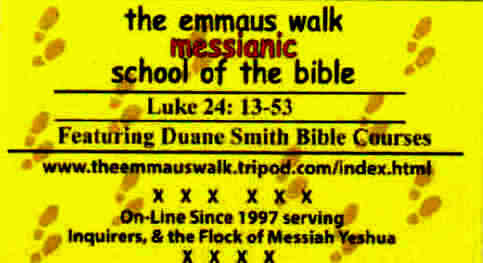
THE EMMAUS WALK PRESENTS:
"Democracy is Tyranny"
Excerpt from "The Age of Aristocracy," from commentary on Edmund Burke, by William B. Willcox

A government subservient to the popular will, as expressed through universal suffrage, would be heading for disaster, Burke argued, because wise public policy cannot be determined by a single arithmetic of counting votes.
Burke would have agreed. He saw the French revolutionaries in their zeal for abstract liberty and equality busily tearing down all intermediate corporate bodies--guilds, provinces, churches--that stood between the individual and the state [same as the Obama Regime is doing today, disregarding states' rights,
ignoring its own responsibility as the Federal Government in those states regarding
the policing of the borders with Mexico and Canada and the tremendous influx of illegal Mexicans,
using the mainstream media as its public organ of propaganda not authentic news,
appointing "Czars" to intervene and regulate in every sector of society without Congressional
oversight, nationalizing whole industries at whim, and exercising powers that never were
allotted the President, all at the expense of Congress, the judiciary, and
the states, not to mention the individual---Ed.]. The result of wiping the slate clean, he warned, would be to leave the individual defenseless against the power of the all-encompassing state which might speak in the name of, but could never be controlled by, the public.
Burke had no faith in the democratic dogma that the people know best know their own interests. They frequently do not, he claimed, and when their will conflicts with their good they must, for their own sake, be restrained by an authority that is independent of them. Otherwise they will use their freedom to destroy themselves. "The restrains on men, as well as their liberties, are to be reckoned among their rights...Men have no right to what is not reasonable, and to what is not for their benefit."
Burke, in other words, attacked the first principle of the Revolution [French Revolution of
the 1790s], that soverignty resides in the entire body of citizens and is expressed in law that that their representatives make. The people may arrogate to themseelves the power of governing, but, he said, that does not give them the right to govern.
"Government is a contrivance of human wisdom to provide for human wants," and such wisdom comes only from long ages of experience.
NO MAN OR GROUP OF MEN HAS A RIGHT TO FLOUT EXPERIENCE AND DESTROY A CONSTITUTION THAT HAS BEEN CENGTURIES IN THE BUILDING, FOR NO ONE HAS THE SAGACITY TO CTREATE A BETER ONE FROM WHOLE CLOTH.
The rationalists argue that they have such sagacity, but their "new conquering" empire of light and reason" is an illusion; they misconceive the nature of society and government, and try to apply a logic of human rights that is the "offspring of cold hearts and muddy misunderstandings."
The result of wiping the slate clean, he warned, would be to leave the individual defenseless against the power of the all-encompassing state which might speak in the name of, but could never be controlled by, the public.
Burke had no faith in the democratic dogma that the people know best know their own interests. They frequently do not, he claimed, and when their will conflicts with their good they must, for their own sake, be restrained by an authority that is independent of them. Otherwise they will use their freedom to destroy themselves. "The restrains on men, as well as their liberties, are to be reckoned among their rights...Men have no right to what is not reasonable, and to what is not for their benefit."
Burke, in other words, attacked the first principle of the Revolution [French Revolution of the 1790s], that soverignty resides in the entire body of citizens and is expressed in law that that their representatives make. The people may arrogate to themseelves the power of governing, but, he said, that does not give them the right to govern.
"Government is a contrivance of human wisdom to provide for human wants," and such wisdom comes only from long ages of experience. NO MAN OR GROUP OF MEN HAS A RIGHT TO FLOUT EXPERIENCE AND DESTROY A CONSTITUTION THAT HAS BEEN CENGTURIES IN THE BUILDING, FOR NO ONE HAS THE SAGACITY TO CTREATE A BETER ONE FROM WHOLE CLOTH.
The rationalists argue that they have such sagacity, but their "new conquering" empire of light and reason" is an illusion; they misconceive the nature of society and government, and try to apply a logic of human rights that is the "offspring of cold hearts and muddy misunderstandings."

Format only: (c) 2010, Butterfly Productions, All Rights Reserved


The Emmaus Walk Home Page
